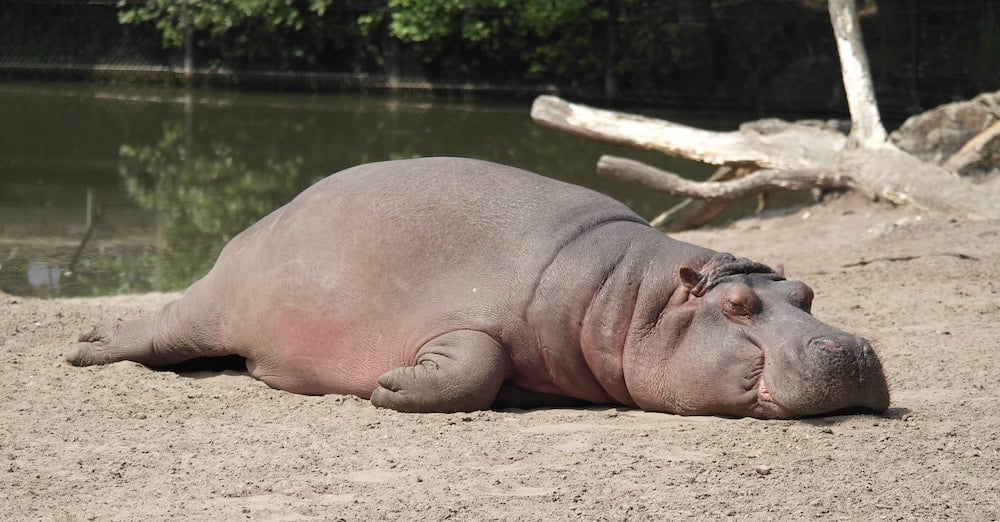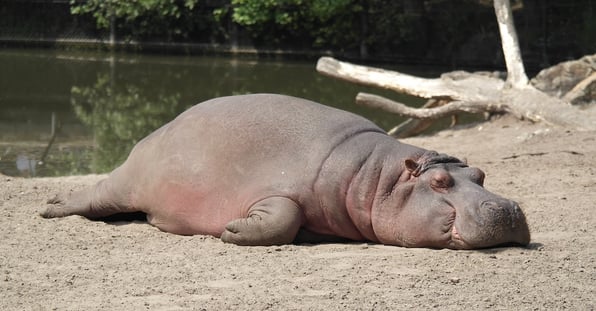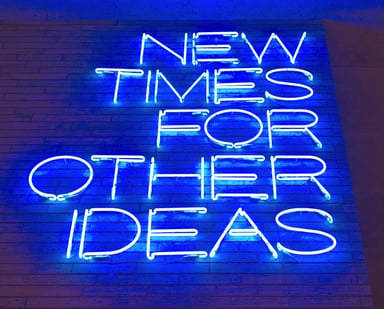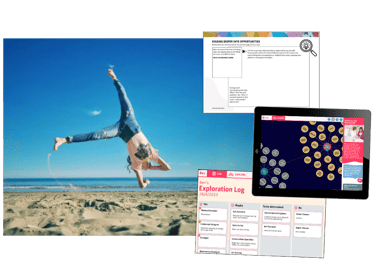Mind the Gap
Big system change is tough but there are positive signs. Policymakers and education strategies leaders around the world are recognising that quality...

You could hear a pin drop.
It's a Wednesday afternoon and we're in a Professional Learning session with a dedicated group of high school teachers and leaders.
I've just presented data that shows just how narrow young people's career aspirations are. Most young people aim for just a few careers from a very short and traditional list. You'd name them easily.
Large-scale global data from the OECD shows this. It's backed by detailed BECOME Australian data showing that overwhelmingly, teenagers' career ideas conform to an alarmingly narrow view of the world.
In our session that Wednesday afternoon, we discussed how all students in all demographics face challenges that limit their aspirations. We deep-dive into their experiences to discuss; 'What do your students believe career success looks like?'
That word, believe is crucial. 'What do your students believe career success looks like?' Where did they gather the idea, and how does their preconception of what success is drive this narrow view of what they can be in the world?
Every school community absorbs and works around challenges that limit student aspirations regardless of demographics.
Some challenges are invisible or unacknowledged. For example, a rigid definition of academic and career success (high grades, high expectations, high anxiety) limits the career ideas students are willing to risk being interested in.
Other cohorts have no role models to follow or little to no networks to draw on. There may even be no or low employment in their area, so experience of work is limited.
For some, the logistics and expense involved in tertiary study represent huge barriers. For others with seemingly every resource available, the pressure is fierce to perform, not to 'waste your ATAR', to sign up to a high-stakes career and chase success without having checked whether it matches your unique personal qualities, your interests and desires for your life.
Without having queried what success means for you.
All of these challenges are real.
All of them lead to the biggest challenge of all: teenage apathy about careers.

Apathy often manifests itself as a shallow approach to thinking about the future. It's a passive approach. When feeling apathetic, you don't actively explore ideas.
Apathy can start with a great big set of career expectations lying right in your path like a large, lazy hippo. It's a bit intimidating. A bit warty. You don't feel invited to walk around it and take your own path to the pool. You might not even be able to see the pool!
So many young people believe they know what career success is, because they have been told what it looks like. Apathy about careers is linked to following 'the rules' about success. Those 'rules' are a large obstruction in the way, blocking them from taking agency.
This is what those teachers and leaders on that Wednesday afternoon were discussing so hard. Not hippos! - They were debating: What do we do when the dominant belief about success in our community limits student aspirations? Their cohort seems to have unlimited options, and yet they overwhelmingly chose to avoid the careers question, to give the easiest answer, to stick to a very narrow traditional path.
When robust careers education is lacking, instead of each young person doing their own thinking and exploring, the student so often is just told or advised.
In the 'test and tell' approach, students are encouraged to be passive. Input person, apply tool or test, output answer, and another student does what is expected of them, for better or for worse. One more missed opportunity to encourage and teach Agency.
Those educators suggested that one way to start waking up student agency is to deliberately push debate about the definition of career success. To speak about multiple definitions of success, share different perspectives and views on success. Explore how to build a personal definition of life success.
Simply providing careers information is not the same as providing careers education. Apathy must be moved out of the road.
Moments of choice research shows that teenagers will use decision heuristics to shortcut to an easy answer about career choices if that’s what’s asked of them.
So when adults ask, with good intentions, 'What are you going to do after school?' the answer is the most obvious, the easy, the unexamined and passive reply. The reply comes from the unwritten list of approved pathways. By the senior years of schools it's a practiced defense against the question, not a genuine answer. Whatever the job or path they name, if it hasn't been examined, then it's a passive choice.
Furthermore, when given lots of career and pathways information without support, motivation or structure to make sense of it, we see all but the most motivated students take a shortcut to the easiest or most obvious route yet again.
The data shows that most young people choose from a list of about ten careers.
And yet research by Borg, Bright and Pryor found that within 18 months of leaving school, over 70% drop out of tertiary education or are knocked off their plan. So that short list is not actually what works for them.
Getting it wrong costs a lot. The Foundation for Young Australians found it took between 2.5-3 years for these young people to get back on track.
Inadequate examination of career aspirations can also include costs such as loss of confidence or belief in their own capability, loss of fees invested in tertiary education, and in some cases, negative repercussions on family support.
Students in aspirational schools worry about having a 'real job' as defined by limited, conservative and possibly outdated ideas about success. Kudos to the educators on that Wednesday who decided to shake up that paradigm.

At BECOME we turn apathy on its head.
Teacher-led lessons are provocative discussions that non career specialists will love to have with their students because they lead to agency and excitement about the future.
For students approaching senior subject selections, when things are getting real, the special program, BECOME Your Own Careers Advisor is designed to push Year 10 (Year 11 in New Zealand) students to unpack the links between their next study steps and the career ideas they may hold. It helps them to choose wisely but keep their options open. It will transform subject selections and help students take agency.
Whether at Year 7, Year 9 or 10 (or across multiple year levels in a whole-school approach), students' records in the BECOME.me app and their Agency Journal provide robust, valuable and tangible artifacts.
Students and teachers can see the many facets of career thinking and research. We can assure them that this is what a real career looks like: it's made of many options and ideas, it requires us to test, talk to people and try things. Change plans and assess new opportunities.
A career is most likely a bit foggy beyond the next step. But each individual has to make sure that next best step is our own. That we've thought about it rather than been given it - however well meaningly - by someone else. That we know what it could lead to and which doors it closes.
Real careers education leaves each individual equipped with ideas for their future. Ideas that they have developed themselves. It gives them the adaptive skills and the motivation to continually explore and tweak their ideas as they live their fullest life.
 Cultivating student agency across the years
Cultivating student agency across the years
Find out more about the BECOME program for Primary students - keeping it wide open and seeding lots of ideas for later.
Our microcredential course for teachers of all subjects helps boost student investment in their learning. Find out more and enrol here.
Or explore BECOME for Secondary, including the special program for subject selection. BECOME changes as students change and grow so that it is perfectly designed for a multi-year or whole school rollout.

Big system change is tough but there are positive signs. Policymakers and education strategies leaders around the world are recognising that quality...

We’ve written before about the three main pitfalls of careers tests. The kind of tests that promise to deliver The Answer, The Solution, The One True...

I’m an optimist. But wow, that bubble has been a bit deflated reading the recent Monash Uni discussion paper, Young Women Choosing Careers: Who...